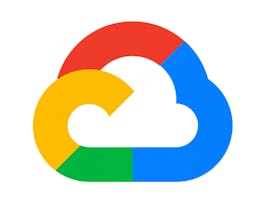This course allows you to apply the SQL skills taught in “SQL for Data Science” to four increasingly complex and authentic data science inquiry case studies. We'll learn how to convert timestamps of all types to common formats and perform date/time calculations. We'll select and perform the optimal JOIN for a data science inquiry and clean data within an analysis dataset by deduping, running quality checks, backfilling, and handling nulls. We'll learn how to segment and analyze data per segment using windowing functions and use case statements to execute conditional logic to address a data science inquiry. We'll also describe how to convert a query into a scheduled job and how to insert data into a date partition. Finally, given a predictive analysis need, we'll engineer a feature from raw data using the tools and skills we've built over the course. The real-world application of these skills will give you the framework for performing the analysis of an AB test.



Data Wrangling, Analysis and AB Testing with SQL
This course is part of Learn SQL Basics for Data Science Specialization

Instructor: Katrina Glaeser Poole
70,353 already enrolled
Included with 
(961 reviews)
Recommended experience
What you'll learn
Validate and clean a dataset
Assess and create datasets to answer your questions
Solve problems using SQL
Build a simple testing framework to touch on AB Testing
Skills you'll gain
Details to know

Add to your LinkedIn profile
9 assignments
See how employees at top companies are mastering in-demand skills

Build your subject-matter expertise
- Learn new concepts from industry experts
- Gain a foundational understanding of a subject or tool
- Develop job-relevant skills with hands-on projects
- Earn a shareable career certificate


Earn a career certificate
Add this credential to your LinkedIn profile, resume, or CV
Share it on social media and in your performance review

There are 4 modules in this course
In this module, you will be able to create trustworthy analysis from a new set of data. You will be able to coalesce some nulls and identify unreliable data and discover reasons why data might be missing. You will also be able to answer ambiguous questions by defining new metrics.
What's included
12 videos3 readings2 assignments6 discussion prompts
In this module, you will be able to name the main the categories of data types. You will be able to explain how the unfiltered data can be manipulated into a table where you can conduct data analysis. You will be able to discuss why a data warehouse is separate from a production database, and you will be able to use the tools you learned to create your own trustworthy tables.
What's included
10 videos4 assignments
In this module, you will be able to map out your joins and be able to highlight the level of detail needed for different kinds of questions. You will be able to practice answering data questions, which should help you feel ready to get asked a whole slough of questions, vague questions, ambiguous questions, or even poorly worded questions. Finally, you will develop a strategy for answering all those questions using data.
What's included
11 videos2 assignments4 discussion prompts
In this module, you will be able to use your SQL skills to set up a basic AB testing system. You will be able to apply hypothesis testing to prove or disprove a hypothesis about how user behavior changed. You will be able to test and interpret the results using a metric or metrics that are tied directly to some business metrics. You will be able to test your SQL skills and give you the base experience you need to learn anything more complicated in terms of AB testing in the future.
What's included
10 videos2 readings1 assignment1 peer review4 discussion prompts
Instructor

Offered by
Recommended if you're interested in Data Analysis

University of California, Davis

University of Colorado Boulder
Why people choose Coursera for their career




Learner reviews
Showing 3 of 961
961 reviews
- 5 stars
32.81%
- 4 stars
16.56%
- 3 stars
16.66%
- 2 stars
16.14%
- 1 star
17.80%
New to Data Analysis? Start here.

Open new doors with Coursera Plus
Unlimited access to 7,000+ world-class courses, hands-on projects, and job-ready certificate programs - all included in your subscription
Advance your career with an online degree
Earn a degree from world-class universities - 100% online
Join over 3,400 global companies that choose Coursera for Business
Upskill your employees to excel in the digital economy
Frequently asked questions
Access to lectures and assignments depends on your type of enrollment. If you take a course in audit mode, you will be able to see most course materials for free. To access graded assignments and to earn a Certificate, you will need to purchase the Certificate experience, during or after your audit. If you don't see the audit option:
The course may not offer an audit option. You can try a Free Trial instead, or apply for Financial Aid.
The course may offer 'Full Course, No Certificate' instead. This option lets you see all course materials, submit required assessments, and get a final grade. This also means that you will not be able to purchase a Certificate experience.
When you enroll in the course, you get access to all of the courses in the Specialization, and you earn a certificate when you complete the work. Your electronic Certificate will be added to your Accomplishments page - from there, you can print your Certificate or add it to your LinkedIn profile. If you only want to read and view the course content, you can audit the course for free.
If you subscribed, you get a 7-day free trial during which you can cancel at no penalty. After that, we don’t give refunds, but you can cancel your subscription at any time. See our full refund policy.



